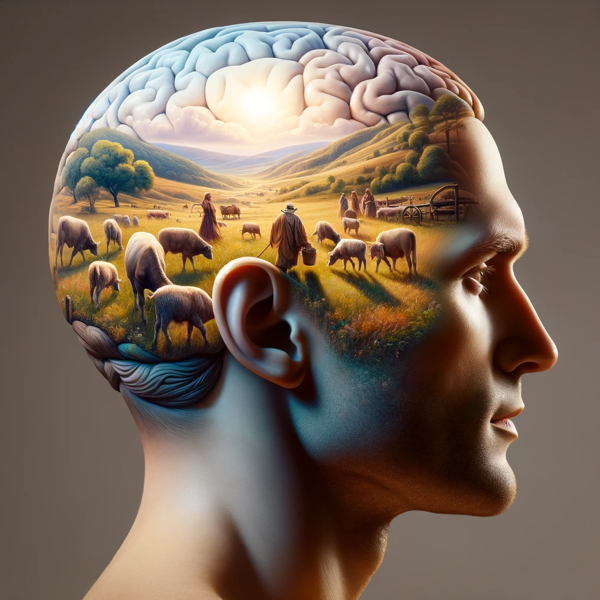- The Wellness Tree1480 Beltress St, Suite 5
Dunedin, FL 34698727-216-6929 Call for appointments & information
- Testimonials
I went to get acupressure because I was past my pregnacy due date, but after the appointment I felt like I was walking on air. I had a lot of energy, my pains were gone, and I realized I needed it more than I really knew. She is understanding and very professional. I would definitely recommend Dr. Graves.
-S.S
Dr. Carrie Johnson is what all physicians should be–knowledgeable, concerned, and caring. She listened and worked with me as an individual. She took me from a life of fear of exacerbating the already constant pain to a life where I can be physically active because the pain can be eliminated by her skilled treatment. Not only did she provide healing with accupuncture to relieve TMJ and radiating nerve pain, she also taught me two simple exercises that extend the effect
... Read more »I am a sr citizen and have been going to Dr. Carrie for a year and am hooked on acupuncture!! She helped me with losing weight and lowering my blood pressure. A great way to stay well and maybe someday all insurance carriers will see to it to cover acupuncture as a medical treatment.
I am a fitness freak: I like cross-country running,cycling, weight lifting, playing basketball and racquetball. But at a certain point I started having severe back pains, spasms and hamstring tightening which sidelined me for quite a while as I tried physical therapy but I did not get immediate relief I was looking for. Then I visited with Dr Carrie Johnson for initial visit and analysis of my condition, at first I was skeptical but Dr Carrie Johnson made me a believer of Acupuncture and Active release techniques. Thanks
... Read more »Let me start by saying I am a certified CrossFit trainer with multiple specialty certifications and I am also a USAW certified Sport Performance Coach. I have dealt with minor injuries before but nothing that forced me to consider some type of rehab or treatment plan. While training high volume or a competition I suffered a low back injury. After months of rest and self prescribed rehab I wasn’t getting back to the shape I wanted and my symptoms persisted.
... Read more » -
Latest Articles:
- • Add These 10 Immune-Boosting Foods to Your Fall Diet •
- • Keep Your Skin Healthy and Glowing with these Fall Skincare Tips •
- • Beat End of Year Burnout with these Fall Self-Care Rituals •
Autoimmune Disease
How Acupuncture Supports Healing in Autoimmune Diseases

In January 2025, Mayo Clinic researchers and collaborators have described — for the first time — the prevalence of autoimmune diseases in the U.S. Their research, published in the Journal of Clinical Investigation, reports that about 15 million people are estimated to have one or more of 105 autoimmune diseases. Treatments can vary but more and more people are looking for alternatives without harsh side effects. Patients are seeking out complementary treatments that address the whole person, not just the symptoms. Among these options, acupuncture stands out as a promising therapy with ancient roots and growing modern validation. continue reading
Using Acupuncture to Manage Autoimmune Diseases

Autoimmune diseases can prove to be intricate and seemingly unsolvable puzzles for many people. And statistics prove this to be true as millions worldwide are impacted by autoimmune diseases ranging from rheumatoid arthritis to lupus, Crohn’s disease, multiple sclerosis, irritable bowel disease, and even Parkinson’s disease. Conventional medicine can diagnose 100 different autoimmune conditions, however the treatments offered don’t completely resolve the issues associated with the disease and in extreme cases, no treatment is available at all. And yet, in the midst of all these medical challenges that autoimmune diseases present, acupuncture emerges as a promising ally, offering relief to those grappling with these often-complex health conditions. continue reading
Understanding POTS: Signs, Symptoms, and Natural Approaches from a TCM Perspective
Postural Orthostatic Tachycardia Syndrome, commonly known as POTS, is a complex and often misunderstood condition that affects millions of people worldwide. Characterized by a sudden increase in heart rate and other debilitating symptoms upon standing, POTS can significantly impact one’s quality of life. In this blog post, we will explore the signs and symptoms of POTS and discuss natural approaches, including Traditional Chinese Medicine (TCM), that may help manage this condition.
What Is POTS?
POTS is a type of dysautonomia, a disorder of the autonomic nervous system that regulates involuntary bodily functions. The primary hallmark of POTS is an abnormal heart rate increase when transitioning from a lying down to a standing position. In individuals with POTS, the heart rate typically rises by 30 beats per minute or more within ten minutes of standing.
Common Signs and Symptoms of POTS:
Tachycardia: A rapid heart rate, often exceeding 100 beats per minute while standing.
Orthostatic Intolerance: Symptoms like dizziness, lightheadedness, and even fainting when upright.
Fatigue: Profound exhaustion, especially after minimal physical activity.
Brain Fog: Difficulty concentrating, memory issues, and cognitive impairment.
Gastrointestinal Problems: Nausea, bloating, and constipation.
Headaches: Frequent headaches or migraines.
Sleep Disturbances: Insomnia or disrupted sleep patterns.
Exercise Intolerance: Inability to engage in physical activity without symptoms worsening.
Traditional Chinese Medicine (TCM) Perspective:
In TCM, POTS is seen as a disturbance in the body’s Qi (vital energy) and Blood circulation. Imbalances in the Heart, Spleen, and Kidney meridians are often observed. TCM approaches to managing POTS aim to restore harmony in the body’s energy flow.
Natural Approaches to Managing POTS:
Acupuncture: Acupuncture can help regulate the autonomic nervous system and improve blood circulation. Specific points targeting the Heart, Spleen, and Kidney meridians are often chosen.
Chinese Herbal Medicine: Herbal formulations customized to individual needs can address symptoms like dizziness, fatigue, and heart palpitations. Herbs like ginseng and astragalus are commonly used.
Dietary Modifications: TCM suggests adopting a diet that supports Qi and Blood, including nourishing foods like dark leafy greens, lean proteins, and foods rich in iron and vitamins.
Hydration: Adequate fluid intake can help maintain blood volume and alleviate symptoms. Adding a pinch of sea salt to water may also be beneficial.
Mind-Body Practices: Tai Chi and Qi Gong exercises can help balance Qi and improve overall well-being.
Stress Management: Stress exacerbates POTS symptoms. Practices like meditation, deep breathing, and mindfulness can help manage stress.
Compression Garments: Wearing compression stockings can aid in blood circulation and reduce orthostatic symptoms.
Physical Rehabilitation: Gradual exercise programs under the guidance of a physical therapist can improve tolerance to physical activity.
POTS is a challenging condition that requires a holistic approach to management. Traditional Chinese Medicine, with its focus on restoring balance and energy flow in the body, offers valuable natural strategies for those living with POTS. Remember that individual experiences and responses to treatments may vary, so it’s essential to work closely with qualified healthcare professionals who understand both POTS and TCM.
Ancient DNA Reveals Fascinating Insights into the Origins of Multiple Sclerosis
Carrie Graves, AP
Recent groundbreaking research has shed light on this enigma, particularly regarding Multiple Sclerosis (MS), a neurological condition affecting millions globally. The surprising link? Our very own ancient DNA.

Decoding the Past: How Ancient Europeans Shape Modern Health
Researchers embarked on a remarkable journey into the past, analyzing DNA from Europeans who lived as far back as 34,000 years ago. The findings were nothing short of groundbreaking, revealing a direct link between genetic variants from our ancestors and the increased risk of MS in the present day.
The Protective Past: Ancient Genetics and Disease Resistance
Interestingly, these genetic variants, now associated with MS, were once defense mechanisms against animal-borne diseases. This insight offers a fascinating perspective on the intricate dance between genetics and health.
The Yamnaya Migration: A Turning Point in Genetic History
About 5,000 years ago, during the Bronze Age, a significant migration shaped our genetic landscape. The Yamnaya, livestock herders from regions like modern Ukraine and southern Russia, moved into Western Europe, bringing with them traits that guarded against infections from their animals.
From Protection to Vulnerability: The Evolution of Genetic Traits
As time progressed and sanitation improved, these protective genetic traits began to backfire, increasing MS risks. This phenomenon particularly affected Northern Europeans, explaining why they have the highest MS prevalence globally.
Adapting to Modernity: The Genetic Legacy of Our Ancestors
Our genetic makeup is a tapestry woven by evolution and past environments. In today’s vastly different world, our immune systems, shaped by these ancient conditions, might not be ideally adapted, potentially leading to conditions like MS.
Rethinking MS Research and Treatment: A New Direction
These findings are pivotal for MS research and treatment strategies. The focus might shift from merely suppressing the immune system to adapting it to our contemporary environment, opening new avenues for managing MS.
Beyond MS: A Glimpse into Other Genetic Influences
The study also revealed other genetic traits influenced by the Yamnaya migration, such as height differences in Europeans, risks for Alzheimer’s and type 2 diabetes in Eastern Europeans, and the emergence of lactose tolerance.
The Takeaway: Our Genetic Blueprint and Health
The study of ancient DNA not only provides insights into diseases like MS but also reminds us of the deep connection between our genetic history and health in a changing world.
TL;DR: Key Insights from the Study
Ancient DNA from European ancestors reveals insights into MS origins.
Genetic variants linked to MS were once protective against animal-borne diseases.
The research involved sequencing ancient DNA from 1,664 individuals and comparing it with modern DNA.
The Bronze Age migration of the Yamnaya people introduced these genetic traits to Western Europe.
Northern Europeans have the highest MS prevalence due to these genetic variants.
The study underscores the dynamic nature of genetic traits in relation to environmental changes.
MS research might benefit from focusing on immune system recalibration.
The study also sheds light on genetic traits related to height, Alzheimer’s, type 2 diabetes, and lactose tolerance in Europeans.
References
Allentoft, M.E., et al. Population genomics of post-glacial western Eurasia. Nature 625, 301–311 (2024).
Allentoft, M.E., et al. 100 ancient genomes show repeated population turnovers in Neolithic Denmark. Nature 625, 329–337 (2024).
Barrie, W., et al. Elevated genetic risk for multiple sclerosis emerged in steppe pastoralist populations. Nature 625, 321–328 (2024).
Irving-Pease, E.K., et al. The selection landscape and genetic legacy of ancient Eurasians. Nature 625, 312–320 (2024).
Acupuncture and Autoimmune Diseases

Autoimmune diseases are a collective group of disorders that plague nearly 50 million people in the United States today. When a person suffers from an autoimmune disease it means their own immune system is attacking the body and altering or destroying the tissues. Autoimmune diseases include things like rheumatoid arthritis, lupus, Crohn’s disease, pernicious anemia, multiple sclerosis, irritable bowel disease and Parkinson’s disease. continue reading

